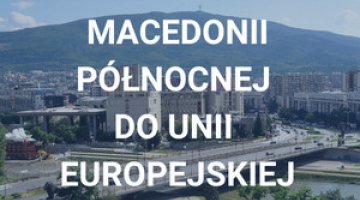Macedonia: A fragile compromise after EU mediation
Macedonia’s four largest parties reached a compromise on 15 July which is expected to bring an end to the political crisis there. The compromise was reached via mediation offered by the EU commissioner Johannes Hahn and members of the European Parliament, as well as due to pressure from the USA. It envisages first of all that a snap election be held on 24 April 2016 – two years early. The government led by Nikola Gruevski is expected to request its own dissolution 100 days ahead of the election, and two ministers from the opposition party SDSM will join the cabinet already in October this year. Furthermore, the parties have undertaken to appoint a special public prosecutor by 15 September who will investigate cases of nepotism, corruption and abuse of power committed by members of the governing party VMRO-DPMNE, which were revealed when wiretap recordings were made available to the general public.
Commentary
- The bitter dispute between the two largest Macedonian political parties has¸ been ongoing since 2014 when the opposition party SDSM started boycotting the parliament’s work, accusing Gruevski of fixing the parliamentary election and of using authoritarian methods of government. The political conflict escalated in February this year, when the opposition leader Zoran Zaev began to publish eavesdropped conversations between politicians from VMRO-DPMN, proving that all state institutions are subordinate to the interests of the party and its activists. The turning point in the conflict was caused by the May clashes between the police and an armed group of Albanians in Kumanovo, during which eighteen people were killed. This incident triggered massive anti-governmental demonstrations in Skopje as an expression of protest against VMRO-DPMN’s attempts to stir up ethnic tension and create a sense of threat in order to strengthen its own position. The risk of destabilisation in the country mobilised EU institutions to become involved in mediation between the main actors of the dispute.
- The compromise achieved under EU and US pressure has led to a reduction of tension in the country and the calming of protests, however, it is still unclear whether this compromise will be put into practice. Given the scale of VMRO-DPMNE’s influence on state institutions and the media, it can hardly be expected that the 100-day period will be sufficient time for the technical government to be able to guarantee that the election will be held in compliance with democratic standards. VMRO-DPMNE will also use the time until January 2016 to additionally strengthen its position. Already after the compromise was signed, the public prosecutor, who is linked to VMRO-DPMNE, launched investigations concerning the wiretapping. This was contrary to what had been agreed and in the opposition’s opinion is intended to cover its tracks. The government party will make efforts to sabotage the process of nominating the ministers to the technical government to prevent the opposition from taking power. Tension is likely to return already in September on the occasion of the appointment of a public prosecutor who will investigate the charges brought against officials from the government party.
- The implementation of the compromise, which is the first step in the process of reinforcing Macedonia’s democratic institutions, will require constant monitoring from the EU and the USA. The government party is determined to hold on to power, and the deal was merely a tactical move and not a manifestation of the will to resolve the crisis in the country through a compromise.



